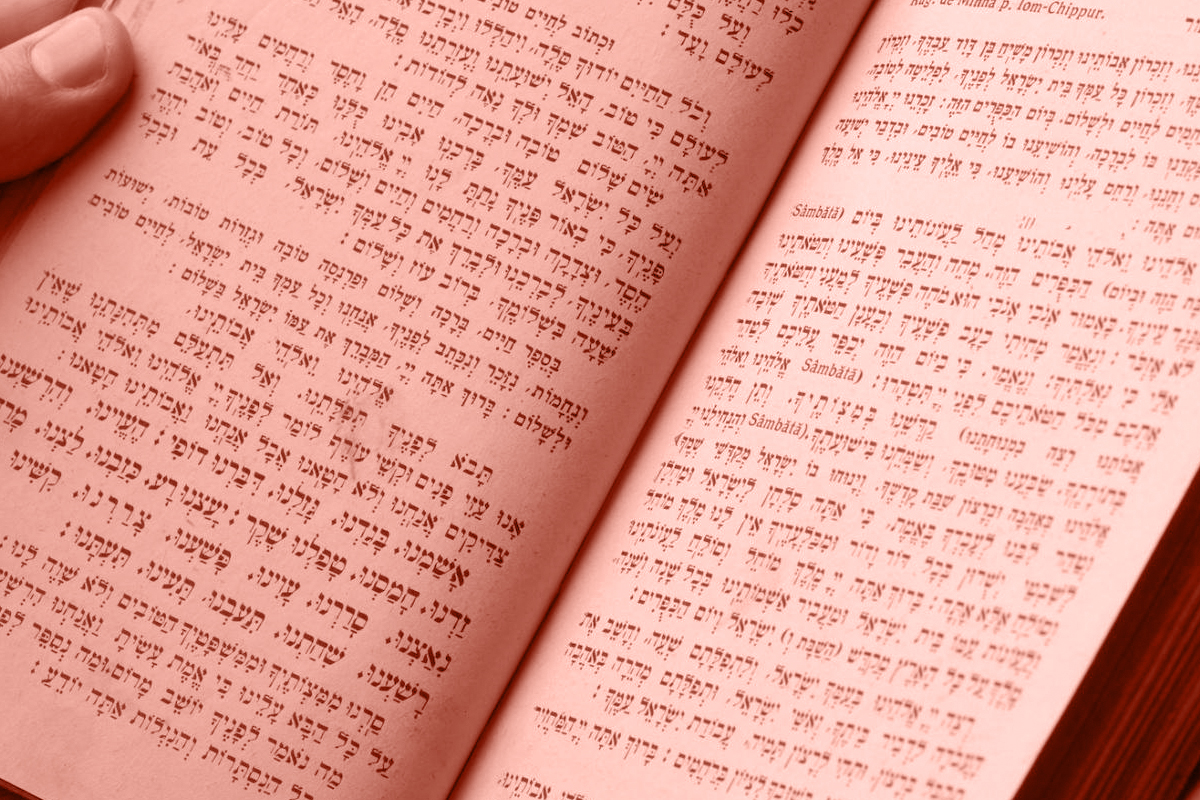Growing up in Israel and later moving to New York in my early teens, I spent my entire pre-college school career at Modern Orthodox Jewish schools. I learned how to pray at the same time I learned how to read. I loved the sense of spirituality, community, and connection that comes with religion. And I still fully embrace it.
But I don’t wear long skirts or avoid eye contact with men. I am religious on my own terms and understanding of the Torah. I’ve had my fair share of struggles with Judaism and prayer, and I am happy to say that I am comfortable with my growing relationship with God. But up until fairly recently, there was one line in the Jewish prayer book, AKA the siddur, that I have had major issues with.
Let me explain. I am a feminist, duh. I don’t like to be put down on the mere fact that I am a woman — something that unfortunately happens quite often, though in my experience, not in the Modern Orthodox community. I never felt that I was worth less than a man, or felt that I was treated differently in academic settings. The community I am part of is empowering. My upbringing helped shaped my way of becoming the strong-minded woman that I am today.
But let’s get back to the siddur. In the daily morning prayers, there are several blessings we make, and men and women read the same things — except one line. Women recite, “Blessed is He Who made me according to His Will.” A beautiful verse that shows appreciation to God and the way we were created. Men, on the other hand, recite a completely different line at this point in the prayer: “Blessed are You, Hashem, King of the Universe, Who did not make me a woman.”
If you’re hearing this for the first time, I’m sure you feel the same thing I felt when I was 7 years old reading it for the first time. Like, EXCUUUUSE ME! What is that supposed to mean?! Why are men out there being thankful for not being a woman, and I can’t give thanks that I am not a man? Rude!
In school, I obviously asked a bunch of rabbis to explain it to me, but not one answer satisfied me. The response was pretty much always the same: Men can’t handle the workload of being a mother (cue the eye roll).
For a long time, my heart felt heavy reading this verse. But then something changed.
It started with a look toward Jewish history. Around the time the first siddur was written, being Jewish was tough. Life as a Jewish woman was even harder; a Jewish woman had to deal with whatever was coming her way. She faced prejudice and discrimination not only for being a Jew, but also for being a woman. Men had their own set of struggles, but they had a little something called male privilege. (I mean, this remains true hundreds of years later, in our present day.)
That made me see that line in the morning prayer in a whole new light. It is not about men thanking God they don’t have to go through pregnancy, labor, or bearing the brunt of childhood. They are actually acknowledging their privilege of being a man — that they could study, work, and participate in gatherings without being dismissed for thinking they weren’t capable enough.
This verse also indicates, to me, that men knew the struggle of women, even back in ancient times. And, on the flip side, Jewish women recognized male privilege; They couldn’t possibly be thankful for not being a man. Because, honestly, being a man would have been a lot easier for them. Instead, they were thankful for being alive, period. They appreciated that God created them, and knew that whatever comes their way, God would give them the tools to deal with it. The Jewish woman has always been strong and resilient.
As I am today.
So now when I get to that point in the prayer, I read it with a sense of pride. Because whatever my struggles may be, I am thankful for being myself. For not being born any other way. Being alive in 2019, all I can say is “Blessed are You, Hashem, King of the Universe, Who did not make me a man, and made me as I am.”
Header image via My Jewish Learning.



